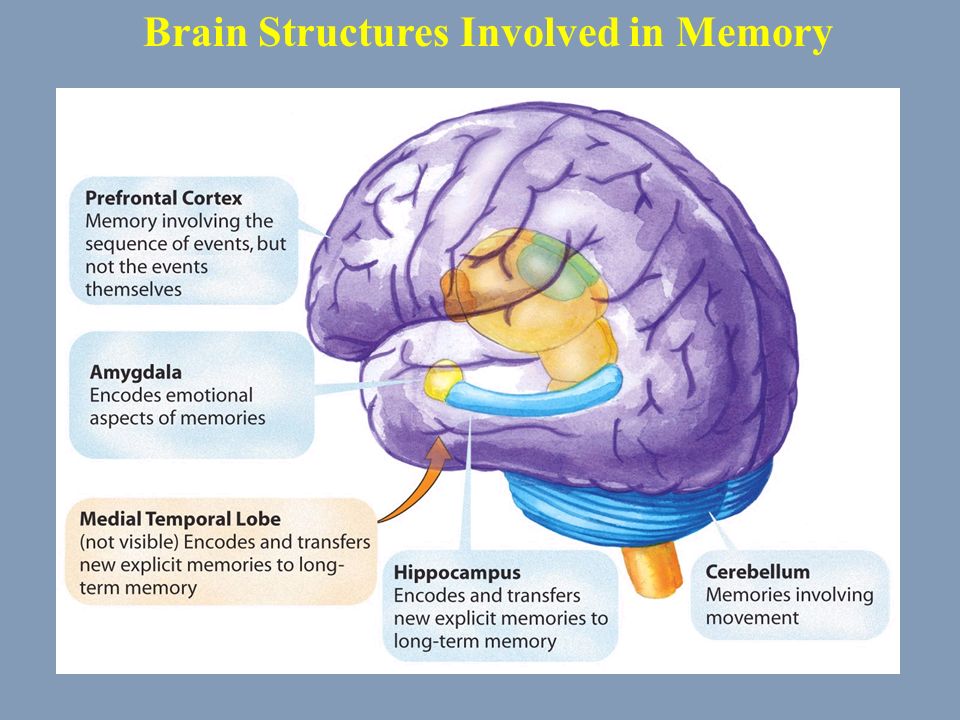
When thinking of memory, we often think of the ability to recall specific information. Riding a bike or retaining studied material for a test are both examples of long-term memory. Each time we learn a new piece of information, our memory stores it somewhere. The more we repetitively learn that new concept, the better we are able to recall it.
Studies show that humans need to be told something more than once, in many instances, in order to remember it. That is why flash cards are great for test study and why developing any new talent takes time and dedicated practice.
 Emotional Memory
Emotional Memory
Aside from learning and storing new pieces of information, the brain has an innate ability to store emotions just as well. We all remember that free feeling when we rode a rollercoaster for the first time, or the butterflies in our stomachs when we fell in love.
Sometimes it takes external forces to bring those emotions to the front of our minds again. Perhaps the scent of a specific perfume will remind us of the seventh grade. Or maybe a favorite song of our childhood takes us back to our first baseball game; one we haven’t thought about in years.
People tend to regard emotional memory as less tangible than informative memory. Maybe it’s because as humans, we are continuously evolving. Even though we all felt that exhilarating feeling at sixteen when we drove a car by ourselves for the first time, we no longer feel that anymore. There is no way to prove that we felt that, other than our own memories, which can’t be felt by anyone but ourselves. It’s a strange concept, is it not?
Language or Emotion?
 Philosophers over the ages have taken turns studying the human mind. Jaques Derrida’s research speculated that language is a helping hand to describe those things that we originally felt without any sort of knowledge how to identify them first.
Philosophers over the ages have taken turns studying the human mind. Jaques Derrida’s research speculated that language is a helping hand to describe those things that we originally felt without any sort of knowledge how to identify them first.
That being said, which came first; emotions or language? And if emotions came first, then wouldn’t we remember those just as well, if not better than, knowledge concepts?
Motivation
Perhaps that theory can be tied with the subject of motivation. Think about it: the reason why you memorized any answers to a test is so you would do well on the test. You were emotionally driven to succeed in that class, go to college and achieve a dream.
Or how about the first time we learned to ride a bike. Most of us were taught by a family member or friend. We felt excitement and determination to learn it and many of us wanted to please our teachers, as well. That tenacity is what drove us to get right back on the bike after we fell and scraped our knees. Maybe now, it’s stored as mere implicit memory. But at the time of learning our thoughts were manipulated by emotion.
Without emotion, we, as humans, would be robots or computers, just spouting out information. Of course, there are those who argue that that’s exactly what we are and that emotions are just part of the programming. After all, as previously stated, we are continuously evolving and there’s no way to prove specific emotions. But what if I told you that there is one thing that affects our emotions that never changes?
The Holy Ghost Never Changes

The Holy Ghost is a member of the Godhead. As members of the Church, we are blessed with the Gift of the Holy Ghost to be with us at all times and places, as long as we keep our baptismal covenants. If that is true, and if the Holy Ghost is, in fact, a member of the Godhead, which doesn’t change, then wouldn’t it also be true that the Holy Ghost never changes as well?
Though we may not want to admit it, we are very much an emotion-driven society. Even the desire for pure analytical logic could be considered an emotion.
So it makes sense that the Holy Ghost is not only referred to as the comforter but also the greatest teacher. It can send a gentle hand in times of need or a soft whisper of reassurance when we wonder if we are making the right decision. It can also teach us truths through the words of the Scriptures or a Conference talk.
Because the Holy Ghost can’t be seen or “heard” many people regard it as a basic human emotion. How can we prove that it isn’t just our own thoughts or feelings? This question can be answered in Moroni 7:12: “Wherefore, all things which are good cometh of God.”
Based on our conversation thus far, we could interpret that to mean that yes, the Holy Ghost is part of our emotions, but only because it helped us discern those things that make us happy in the first place.
We could also take that to mean that it ultimately taught us everything we know. Every human being is blessed with the light of Christ to help him/her discern right from wrong. Any great scientist, philosopher, explorer, etc. was influenced by the Holy Ghost. It teaches truths. And that doesn’t just mean the truths we read about in the Scriptures.
Knowledge Used in Time of Need
 In an October 1993 General Conference session, Elder Richard G. Scott taught, “knowledge carefully recorded is knowledge available in time of need.” After you receive a priesthood blessing, for example, write down the words that were said. Or if you feel a spiritual promise in a church meeting, write down what the Spirit communicated with you. If you record those impressions, you’ll find they may just be the answers to your prayers at a later time.
In an October 1993 General Conference session, Elder Richard G. Scott taught, “knowledge carefully recorded is knowledge available in time of need.” After you receive a priesthood blessing, for example, write down the words that were said. Or if you feel a spiritual promise in a church meeting, write down what the Spirit communicated with you. If you record those impressions, you’ll find they may just be the answers to your prayers at a later time.
The other thing about carefully recorded knowledge is that if you go back and review it later, you will also be reminded of the emotions that you felt at the time. Many of us may doubt the Spirit at different times of our life. Someone may say something that makes us question everything. But as the Lord reminded Oliver Cowdrey in Doctrine and Covenants 18:2-3:
“Behold, I manifested unto you, by my Spirit in many instances, that the things which you have written are true; wherefore you know that they are true.
“And if you know that they are true, behold, I give unto you a commandment, that you rely upon the things which are written;”
So, which does the Holy Ghost affect more: emotions or logic? It may just be that it affects both simultaneously in a way that only it can. It can bring back past spiritual impressions through carefully recorded knowledge and it can teach us new things through emotion. So, it makes sense why God tells constantly through the Scriptures, rely on “the power of the Holy Ghost [and we] may know the truth of all things” (Moroni 10:5).
How does the Holy Ghost influence you? Comment below.





